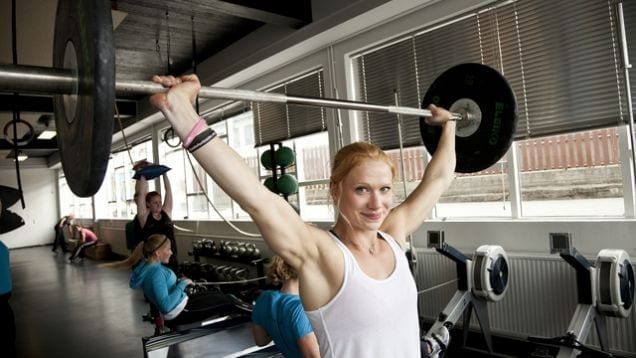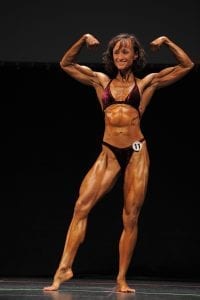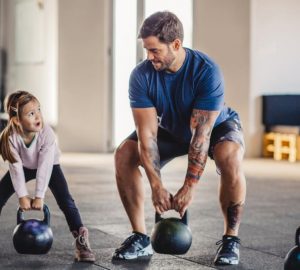Weight loss success stories through resistance training and other methods are plentiful and very visible. We offer words of praise and encouragement when someone we know loses weight. We turn on the television and programs such as the Biggest Loser bombard us with messages of fat loss success. We scroll the internet to see a multitude of before and after photos showcasing pounds of fat melted away.
But what about those who live on the other spectrum of the scale? Those who are very thin and have difficulty putting on weight no matter how hard they try? Where accolades are generally given to those who lose weight, there isn’t much sympathy directed towards those who are very thin. Case in point; for most of my life hurtful and derogatory comments were abundant. “You’re so skinny you make me sick”, “You’re such a bone rack”, “Does your Mother feed you?”, “Who would want to marry a stick like you?”. Comments such as these left lasting scars, affecting my self-image and self-confidence. Admittedly, I was skinny. The kind of skinny where you do a double take and think “Is that person anorexic?” I wasn’t. I was just naturally thin.
Naturally thin people are a minority. Very little research has been done to understand them. Most research is aimed at eating disorders that lead to extreme leanness. However a research team, led by Chaitanya K. Gavani of Kent State University suggests that the muscles of naturally thin people may work differently than those who tend to gain weight more easily. Research done on rats showed that leanness is genetic and may be due to a greater aerobic capacity in muscles (the ability to transport oxygen and utilize it during exercise). The belief is that the lean rats had a higher level of protein that supports energy expenditure and lower levels of protein that support energy conservation. In essence, the genetically lean rats were able to burn more calories more easily and this may be the same mechanism found in lean humans.
A naturally thin person is often dubbed as a “hardgainer”. Wikipedia defines a hardgainer as “a person who practices bodybuilding but finds it challenging to develop musculature regardless of the amount of effort put in”. It isn’t unusual to see a lean, lanky man or a teenager hit the gym in the hope of gaining precious muscle to fill out his physique. But what about naturally thin women? Do they seek out ways to increase their weight? I ultimately did.
Research shows us that women place great importance on the scale. Davis et al. from York University demonstrated that women are more dissatisfied with their bodies than men in regard to weight and place greater importance on their appearance as an influence on their feelings of well-being.
Being extremely lean is an attribute that is highly valued, especially in the fashion industry. Open a magazine or watch a runway show and it becomes very evident that thinness is a requirement. At 5’8” and 110lbs, I was a good fit for modelling and did well in the industry until one day I started losing jobs because I was too thin (yes, too thin for modelling). This, coupled with a growing dissatisfaction for my shapeless body and low self-esteem, led me to think that the only way I could safely add curves was to lift weights. Since my healthy appetite made no difference in my physique, my last resort was resistance training.
Fifteen years ago I found a trainer who understood my goals and within a few years of consistent drug-free training with him, my weight crept up and I finally had noticeable curves. I consistently resistance trained 5 times per week, with an emphasis on large compound lifts such as squats, deadlifts, rows, presses and Olympic lifts. My quest for size and shape soon grew into a love and passion for resistance training as well as into a new-found inner strength.
Today, at a lean 135lbs, I am a nationally ranked competitive bodybuilder. Who knew that lying dormant in that skinny body was the potential to excel in a sport where muscle and shape is required? Dedication to the weight room changed my life physically. I can no longer model because I’m too muscular (yes, too muscular) and it changed it me psychologically. I found an inner strength to match my new found physical strength.
Depression, anxiety, low self-esteem and poor self–confidence affect many individuals. Most people don’t think of physical activity as a remedy or prescription for changes in mental health yet research clearly shows us that exercising can greatly improve mood. In 2001, Helgo, et al. showed us that physical activity has been associated with reductions in both depressive symptoms and anxiety and that the adoption of a physically active lifestyle is often accompanied by an improvement in self-esteem.
Resistance training has allowed me to not only look a certain way but to feel a certain way. The stronger I become physically the stronger I become mentally. The day I deadlifted 250lbs made me realize that I could do anything. A feat of strength like that was absolutely not in the realm of possibility in my life years ago. Now I know that I can do anything and be anything.
Initially I was just after curves. The unexpected side-effect of inner strength allowed me take charge of my life in a way that I never thought possible. I’m still fighting my “skinny” genetics, but I know now that the time and effort I put into the gym is mostly about self-determination. It’s about pushing my limits and going to places I never dreamt I could. It’s about having dreams and doing what I have to do to accomplish them. It doesn’t make me less of a woman to have big muscles. It makes me more certain of my womanhood, of who I am and of my endless supply of physical, emotional and spiritual strengths.
By: Lynne Loiselle









